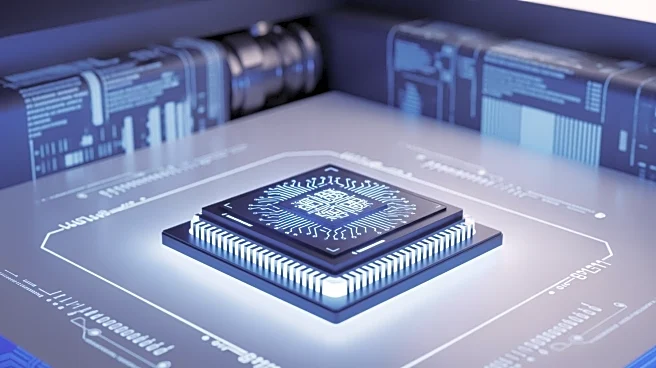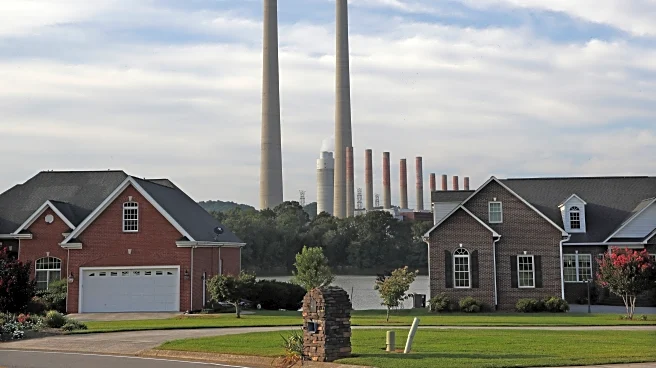What's Happening?
Tesla is exploring the possibility of manufacturing its own chips due to ongoing semiconductor supply constraints. During the annual shareholder meeting on November 6, Chief Executive Elon Musk revealed
that the company might need to establish a 'terafab' to meet the increasing demand for artificial intelligence processors. This move marks a shift from Tesla's previous reliance on contract producers for chip manufacturing. Musk also mentioned the potential for collaboration with Intel in this endeavor, highlighting the strategic importance of securing chip supply to support Tesla's AI-driven initiatives.
Why It's Important?
The decision by Tesla to consider building its own chip factory underscores the critical role of semiconductors in the automotive industry, particularly as vehicles become more reliant on AI technologies. This development could have significant implications for the U.S. semiconductor industry, potentially boosting domestic production capabilities and reducing dependency on foreign suppliers. For Tesla, securing a stable supply of AI processors is vital to maintaining its competitive edge in the rapidly evolving electric vehicle market. The move could also influence other automakers to reassess their supply chain strategies in response to global semiconductor shortages.
What's Next?
If Tesla proceeds with the construction of a chip factory, it could lead to increased collaboration with technology companies like Intel, fostering innovation in AI processor development. The establishment of a 'terafab' would likely require substantial investment and regulatory approvals, potentially impacting Tesla's financial strategies and operational focus. Stakeholders, including investors and industry analysts, will be closely monitoring Tesla's next steps and any official announcements regarding partnerships or site selection for the factory.
Beyond the Headlines
Tesla's potential entry into chip manufacturing could signal a broader trend of vertical integration within the automotive industry, as companies seek greater control over critical components. This shift may prompt discussions on the ethical and environmental implications of increased semiconductor production, including resource consumption and waste management. Additionally, Tesla's move could influence policy discussions on supporting domestic semiconductor manufacturing to enhance national security and technological independence.











